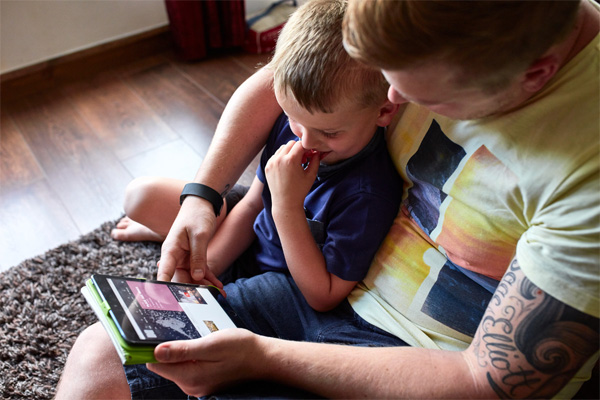Online Safety
Here at Venn Boulevard Centre, we take safety on the internet very seriously. Our school network is managed by the Trust, which helps to protect our children from seeing inappropriate material. We urge you as parents to make every effort to try and also keep the children safe at home when using the internet and mobile phones.
You can make sure your child is safe online by using technical parental controls and creating your own rules. Rules should cover things like which websites they can visit and how long they can spend online. You should also stress the importance of keeping personal information safe.
View our online safety policy:
Organisations and websites offering further information and support for online safety:
Play Like Share –
Play Like Share follows the adventures of Sam, Ellie and Alfie as they form a band and enter their school’s Battle of the Bands contest, taking on the mean but ‘cool’ Popcorn Wizards as they go. The three friends learn that while the internet can help, they need to use it wisely and safely.
The aim of the films is to help 8-10 year olds learn how to stay safe online. In particular, the films teach them to spot the early signs of manipulative, pressurising and threatening behaviour by people they might meet online, and develops their confidence to respond safely and get help.
Be Share Aware –
Keep your child safe online
We tell our children it’s good to share – but online it’s different. In fact sometimes sharing online can be dangerous. Being Share Aware will help keep your child safe online.
Watch and share a short film and take a look at some straightforward advice that will untangle the web, and give parents confidence in talking to their children about how to stay safe online.

“A time of ‘reflection’ at the end of the
day allows pupils to consider how they have performed at school and helps them to focus on their attitudes and behaviours. ”

“The systems and structures that you have put in place ensure that pupils feel safe at school.”

“Teaching at your school is characterised by positive relationships between members of staff and pupils.”

“Teachers consider
pupils’ emotional well-being deeply and give them space when they need to refocus.”

“Pupils make strides socially and emotionally.”

“The most striking aspect of your school is the way in which you plan to support pupils’ individual needs.”

“Pupils at your school feel safe.”

“Pupils talked to us about the way in which you
and your staff celebrate difference and help to make everyone feel valued.”

“All pupils benefit from targets to help them to develop their social and emotional skills and to build a level of resilience.”

“The work of the
life coach can include one-to-one work in addition to positive thinking strategies,
mindfulness and aromatherapy.”

“Before coming to
school, you and other leaders work hard to understand the needs of individual
pupils.”

“Pupils value the way in which you and your
staff make everyone feel included.”

“An SEMH curriculum runs through the heart of your school.”

“Your school helps pupils to become
confident rounded young people.”

“Once at school, the life coach works with
individuals to help them to deal with any anxieties that they may have.”

“In classrooms, pupils focus hard and respond well to any advice and guidance that is given to them.”

“A time of ‘reflection’ at the end of the
day allows pupils to consider how they have performed at school and helps them to focus on their attitudes and behaviours. ”

“Pupils told inspectors that they really value the way in which they feel respected at your school.”

“Teachers and teaching assistants work hard to ensure that pupils are ‘nudged’ in the right direction in lessons.”

“Within classrooms, teachers reward positive behaviours consistently.”

“Pupils are given chances to reflect upon this
through ‘life books’ where observations are made, and improvements praised.”

“Inspectors saw first-hand the way in which your staff spoke to pupils with compassion and respect.”

“You seek to identify any triggers which cause pupils to behave erratically and you work towards eliminating these.”

“Pupils welcome new arrivals with understanding and compassion.”





